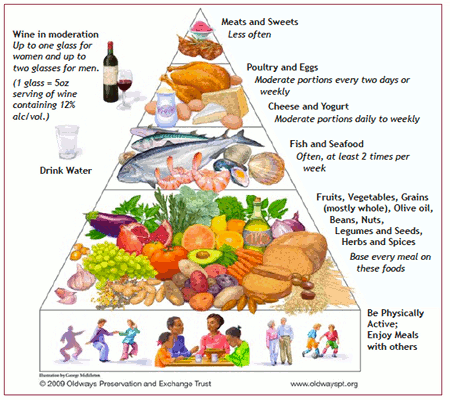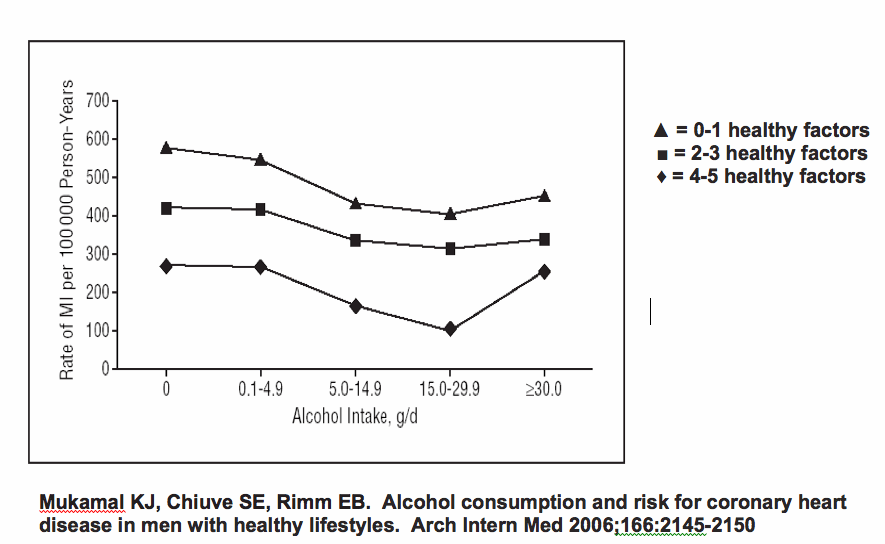
 |
|
|
DIET AND EDUCATION
Alcohol and a balanced diet
Most adults across the United States enjoy drinking and do so within the daily responsible drinking guidelines – that is 1 drink for women and 2 drinks for men. In this section we have ideas to help you maintain a balance to having a good time without going over the top. View our Top tips for responsible drinking as part of a healthy lifestyle.
 |
It is important to include drinking alcohol only as part of a balanced diet and lifestyle that includes plenty of fresh fruit and vegetables, not smoking, maintaining a low BMI and exercise, of course.
Calories
The US Dietary Guidelines 2010 state that “Alcohol contributes 7 calories per gram, and the number of calories in an alcoholic beverage varies widely depending on the type of beverage consumed. Alcoholic beverages are a source of calories but provide few nutrients. Alcohol is a top calorie contributor in the diets of many American adults.
Moderate evidence suggests that moderate drinking of alcoholic beverages is not associated with weight gain. However, heavier than moderate consumption of alcohol over time is associated with weight gain. Because alcohol is often consumed in mixtures with other beverages, the calorie content of accompanying mixers should be considered when calculating the calorie content of alcoholic beverages. Reducing alcohol intake is a strategy that can be used by adults to consume fewer calories.”
Alcohol is fat free but high in calories. A regular beer has approximately 150 calories and a glass of dry wine has 120 calories – about the same as an apple juice. Binge drinking can make you feel hungry though, as alcohol stimulates your appetite while reducing your self-control, so you're more likely to binge eat if you binge drink.
Spirits with non-diet mixers, fortified and dessert wines are much more calorific per serving, however. (Seerethinkingdrinking.niaaa.nih.gov/tools/Calculators/calorie-calculator.aspx)
Healthy lifestyle and the Mediterranean diet
Studies have shown that a healthier, ‘Mediterranean’ type diet, high in fruits, vegetables, fish, salad and olive oil and including alcohol in moderation, leads to greater longevity and a significant reduction in heart disease, late on set diabetes and stroke.
 Following the five heart healthy lifestyle factors of staying slim, not smoking, exercising gently daily and eating a balanced diet high in fibre, fruit and vegetables and low in saturated fats and drinking between 1/2 and two drinks a day, more than halves the risk of heart disease, type 2 diabetes and stroke.
Following the five heart healthy lifestyle factors of staying slim, not smoking, exercising gently daily and eating a balanced diet high in fibre, fruit and vegetables and low in saturated fats and drinking between 1/2 and two drinks a day, more than halves the risk of heart disease, type 2 diabetes and stroke.

Drink with food
Drinking with food not only decreases the effect of alcohol (lowers the higher blood alcohol level associated with drinking on an empty stomach), but helps counter damaging free radicals. Rich foods increase the state of “oxidative stress” in the body. Dietary antioxidants, including those from red wine, can help reduce the oxidation of cholesterol and lipoprotein, both implicated in cardiovascular disease. Research shows that drinking outside of meal times increases the risk of high blood pressure; and, along with abstinence, is associated with greater all cause mortality.
Click here for Top Tips for responsible drinking as part of a healthy lifestyle